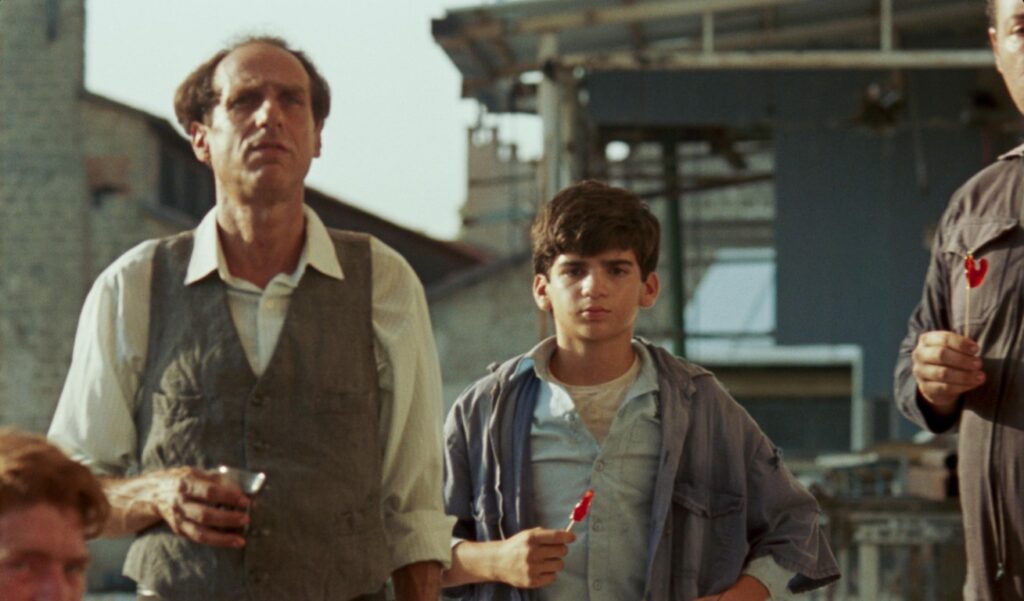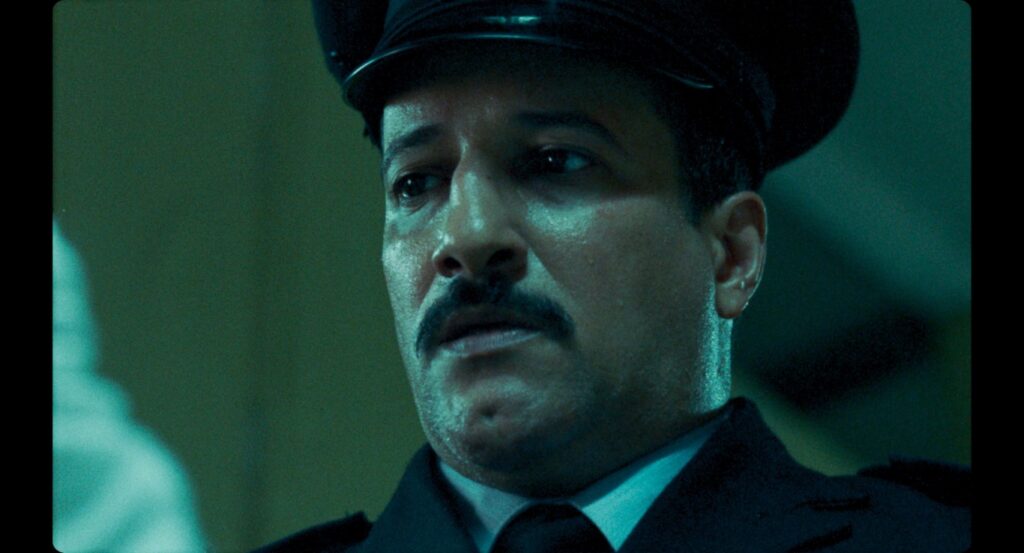Read also:
How to Watch FX Live Without CableHow To Watch AMC Without CableHow to Watch ABC Without CableHow to Watch Paramount Network Without CableSo back in 1982, Harrison Ford was on Letterman promoting Blade Runner (this is gonna make sense, promise), and when Dave asked him to describe the movie’s tone, Ford took a long pause and said, “It’s no musical comedy, David.” The most succinct way to describe June Zero, directed and co-written (along with Tom Shovel) by Jake Paltrow, is that it’s no musical comedy. What it is is a subtle, thoughtful, closely observed story about a small moment in history that explores the difficulty in distinguishing justice from vengeance, understanding your trauma versus defining yourself by it, and how hard it can be to find moral equilibrium in a world in constant turmoil. It’s not what you’d call a fun movie (see above re: Ford, Harrison, and Blade Runner), but it is quietly gripping and manages to find a fresh new perspective in one the most wrung-out of genres, the Holocaust Reckoning Movie.
One of the most prominent Nazis to survive the war and escape Germany was Adolf Eichmann, a high-ranking officer in the SS and one of the primary organizers and executors of the Holocaust. Eichmann managed to escape Allied imprisonment and avoid capture until he was apprehended in Argentina in 1960 by Israeli Mossad agents. He was taken to Israel, tried, convicted, and sentenced to hang, which he did on June 1st, 1962.
June Zero is barely interested in any of that very well-trodden ground. What it focuses on instead are the dual problems of keeping Eichmann alive until the state can execute him and what to do with his body after he dies. Burying such a monster on Israeli soil was obviously out of the question, as was the prospect of returning the body to Eichmann’s family or anywhere else out of fear that it could be interred and become a pro-Nazi symbol. The only choice that makes any sense is cremation. And so Israel went about the business of building an oven to incinerate the corpse of a man who planned and oversaw the incineration of so many of their people.

The movie is a triptych, bookended by the story of the construction and operation of the oven used to cremate Eichmann. The protagonist of that story is a troubled thirteen-year-old David Saada (Noam Ovadia), an Arab Jew from Libya who, after getting in trouble one too many times at school, is taken by his father to work at a local foundry in an attempt to instill some responsibility into the boy. David is fearless and intelligent but also angry and reckless, in part due to the scorn and mistrust he gets for not being a European Jew. David’s father was actually in a camp, which gets him little respect from his teachers and peers. Even nations built from the ruins of prejudice and hate aren’t immune to discrimination. But David finds a place at the foundry, where his dating and quick thinking catch the eye of the hard-nosed, ex-terrorist Shlomi (Tzahi Grad). In a short time, he becomes a crucial part of the crew.
The second story focuses on Haim Gouri (Yoav Levi), the officer charged with keeping Eichmann alive and safe until his execution. It must be a strange and disorienting thing to keep a person alive until the day they’ve been set to die, especially when virtually every person who comes in contact with him has a strong motive to kill him. When Eichmann requests a haircut and his usual barber is unavailable due to having died, a replacement is sent, and Haim is forced to watch him like a hawk less; he plunges his scissors into the Nazi’s neck. Haim only allowed Arab Jews to interact with the prisoner, the rationale being that European Jews were more likely to have been in or lost someone in one of his camps.
At first, it seems like an ironic inversion of David’s outsider status, but it’s really more of the same. The pain of Arab Jews isn’t as real as that of European Jews. They’re not more trustworthy for some honorable reason; their experiences aren’t as legitimate. But Haim is himself an Arab Jew. Centering two of its stories with those protagonists implicitly argues for their humanity and equality as Jews. There’s nothing the movie stops explicitly to point out; there’s no “With this watch” scene to ensure the back rows get it; it’s simply there. A fact.

The third and final story (remember, the first story is split in half, both opening and closing the film) is the only one that doesn’t occur in Israel. Yanek Herkz (Ami Smolarchik) is an Israeli police officer who investigated and was assigned to protect Eichmann. He’s also a survivor of Auschwitz. His third involves him returning to Auschwitz and telling his story of his time at the camp to a group there, and then a long conversation with a young woman named Ada (Joy Reider) about the usefulness of keeping those old horror stories alive. She’s a righteous optimist, eager to shed the horrific past and wary that if they don’t let it go, it will define them. He’s a weathered pragmatist who has been taught by experience that something as massive and incomprehensible as the Holocaust can fade from memory almost as a defense mechanism and that remembering and understanding it is the best way to stop it from ever happening again.
June Zero argues that those tensions, contradictions, and ethical lapses make up the foundation of Israel. It’s a home for Jews, created out of necessity to avoid persecution that itself persecuted the wrong kinds of Jews. It was formed in the shadow of the Holocaust and built a German-designed oven for the purposes of incinerating a corpse (to be fair, it was one corpse, but still). It was a place for a new beginning built by people haunted by the past.
But those aren’t inherently Jewish problems; you can find them anywhere. All of these stories are about the contradictions inherent in being alive and how we can simultaneously be a part of something and separate from it. How sometimes you have to protect something in order to destroy it. And how essential it is to use the pain of the past to fuel optimism for the future. It’s not particularly interested in drawing conclusions or taking stands as it takes a moment to consider the depths of those contradictions; it just wants to sit with them for a moment. Turn them over. Consider them and how they’re all still with us today.
June Zero is currently playing in theaters.